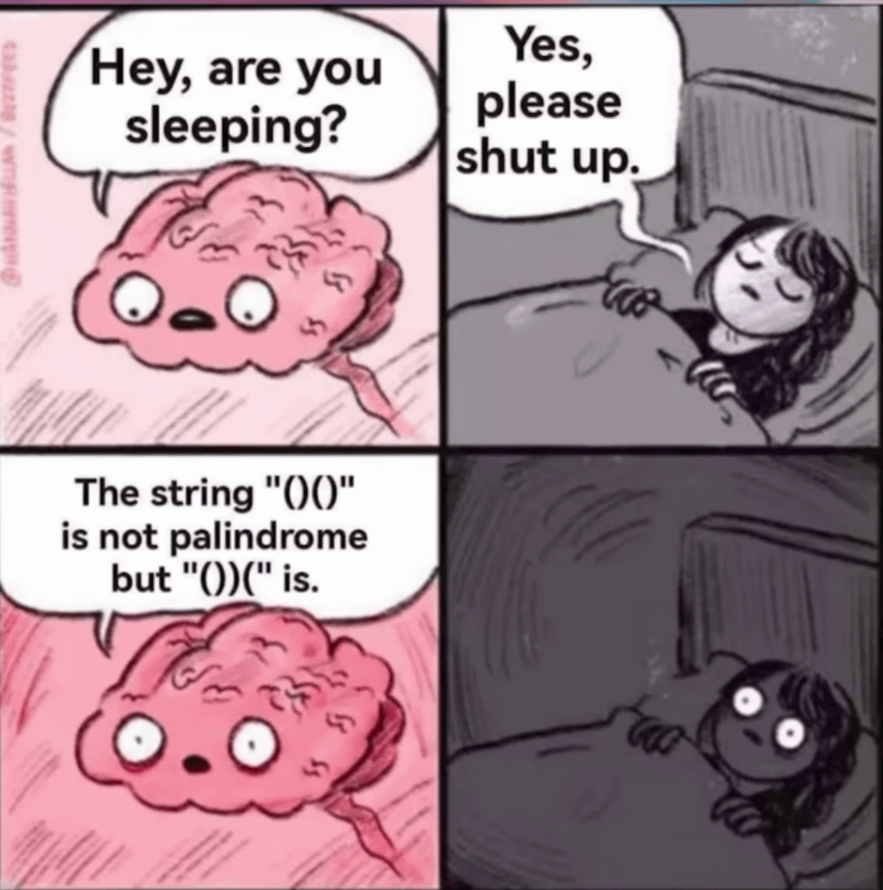this post was submitted on 12 Aug 2024
1038 points (97.8% liked)
Programmer Humor
19529 readers
751 users here now
Welcome to Programmer Humor!
This is a place where you can post jokes, memes, humor, etc. related to programming!
For sharing awful code theres also Programming Horror.
Rules
- Keep content in english
- No advertisements
- Posts must be related to programming or programmer topics
founded 1 year ago
MODERATORS
you are viewing a single comment's thread
view the rest of the comments
view the rest of the comments

Calm down, everyone. Brackets form a tree structure, and can be represented by a free magma, while strings with concatenation are equivalent to a free monoid. You're essentially asking for the two respective common involutory operations to be connected by this map, just because they're involutory, which put that way is a wild guess at best. In fact, reversing this string produces something outside the range of the map entirely, which is injective and so can't be surjective for combinatorical reasons.
... Yeah I might be the only person that finds that useful.
I'm just going to assume those 4 dollar words are real and you aren't just misspelling normal words to fuck with us.
Non surjective free magma? What about the doblastic amortized basalt?
I was saying unipotent at first instead of involutory, which was actually the wrong jargon because of the context, but I've fixed that now. Yes, they're all real.
A glossary:
Involution
Surjective
Injective
Free magma
Free monoid
Map, although in this context I could probably have just said function. I go with map by default when thinking bidirectionally.
I think most people here will know combinatorics, the study of the different possible configurations of something. The number of n-length strings with two possible characters is 2^n^, as coders should all know, and the number of trees turns out to be Catalan numbers, many of which have prime factors other than 2. This is an injective map from n node trees to 2n character strings, so it's possible, but you'll (almost?) never get a perfect match, so by the pigeonhole principle it can't be surjective.
I'm wondering now if Catalan numbers are O(n!). The equation has a lot of n! but it also has a certain smell like it might depend on big or little o.
Edit: D'oh, they must grow no faster than 2^2n^; I just wrote that. So, exponential.
You are awesome.
Lemmy is better for you being here. Thanks for the reading material!
You're very welcome! How kind.